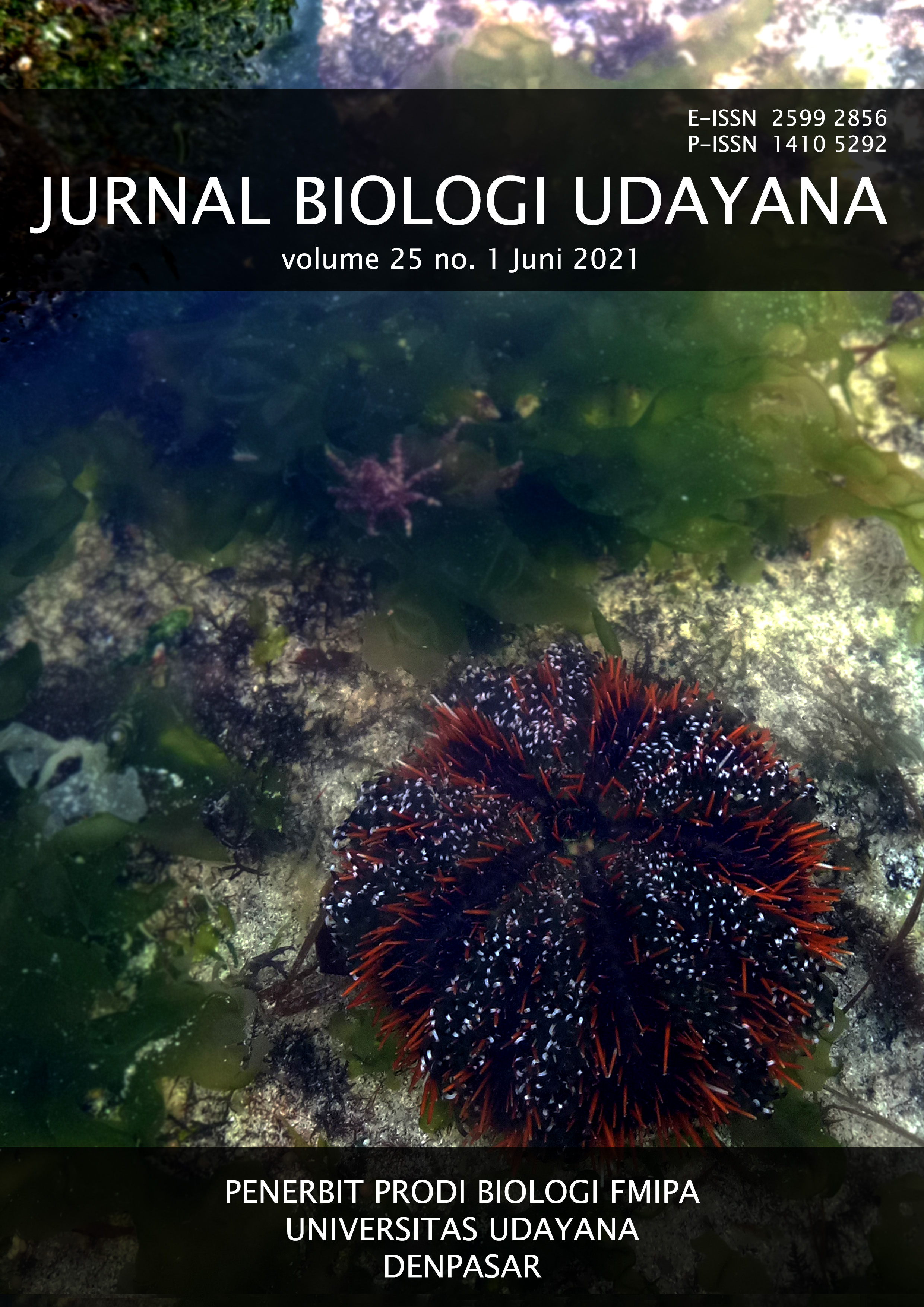Inorganic waste management at Alila Villas Uluwatu, Bali
Abstract
Environmental problems are complex things that they are very influential on all components in the ecosystem. One of the environmental problems is caused by the production of waste that is not treated properly, for example in the hotel industry. Tourism is one of the activities that produce various kinds of waste, both environmentally friendly and not. Products that are not environmentally friendly can pollute the environment if they do not handled properly. Alila Villas Uluwatu (AVU) is one of hotels in Bali that are committed to environmentally friendly and efforts to protect the environment by minimizing waste production. The objective of this research was to find out AVU's strategies in protecting the environment, especially in handling the resulting inorganic waste, such as glass, paper and plasctics. The method utilized in data collection on this study was through conducting interview, direct observation in the field and examination of related documents. Data analysis was performed descriptively, either in qualitative and quantitative forms. The results showed that the waste management strategy in AVU included efforts to minimize inorganic waste production and by using more environmentally friendly materials such as toothbrushes with wooden handles, paper straws and bamboo straws.
Downloads
References
Alila Hotels and Resorts. 2020. “Location”. https://www.alilahotels.com/uluwatu#snap-locations. (Diakses pada tanggal 19 Mei 2021).
Bagiastra IK, Damayanti SLP. 2019. Pengolahan Sampah Basah Dengan Menggunakan Stater di Hotel Lombok Raya. Media Bina Ilmiah 14(1): 1939-1948.
Basuki S. 2006. Metode Penelitian. Wedatama Widya Sastra: Jakarta.
Brian R. 2019. Kajian Literatur Pengaruh Nilai Kesadaran Lingkungan bagi Perilaku Konsumen terhadap Green Hotel Practice. Jurnal Hospitality dan Pariwisata 5(1): 1-85.
Dalem AAGR, Widana IN, Simpen IN, Artawan IN. 2010. Effort Performed by Hotels in Bali in Looking After the Environment. Jurnal Lingkungan Hidup Bumi Lestari. 1(10): 113-122
Data Guest Night. 2018. Alila Villas Uluwatu Bali.
Departemen Perindustrian, 1982. Perkembangan Industri Kertas dan Pulp di Indonesia dan Dunia (Bagian A-B). Biro Data dan Analisa: Jakarta.
Flin RA, Trojan PK. 1975. Engineering Materials and Their Aplications. Honh Ton Mifflin Co: Boston.
Hasanah H. 2017. Teknik-Teknik Observasi: Sebuah Alternatif Metode Pengumpulan Data Kualitatif Ilmu-ilmu Sosial. Jurnal at-Taqaddum 8(1): 21-46.
Kementerian Pariwisata Republik Indonesia. 2016. Panduan dan Pedoman Pelaksanaan Green Hotel di Indonesia. Jakarta.
Noel CS. 1998. The Glass and Glazing Handbook. Standards Australia SAAHB125: Australia.
Okatama I. 2016. Analisa Peleburan Limbah Plastik Jenis Polyethylene Terphtalate (PET) Menjadi Biji Plastik Melalui Pengujian Alat Pelebur Plastik. Jurnal Teknik Mesin 5(3): 109-113.
Peraturan Badan Pengawas Obat Dan Makanan Nomor 20 Tahun 2019 Tentang Kemasan Pangan.
Peraturan Gubernur Bali Nomor 97 Tahun 2018 Tentang Pembatasan Timbulan Sampah Plastik Sekali Pakai.
PT. Bukit Uluwatu Villa Tbk. 2020. https://www.buvagroup.com/id/sekilas-perseroan/corporate-social-responsibility-tes/ (Diakses pada 11 Juli 2020).
Puteri RM. 2017. Kajian Permasalahan Pengelolaan Sampah dan Dampak Lingkungan di TPA (Tempat Pemrosesan Akhir). Jukung Jurnal Teknik Lingkungan 3(1): 66-74.
Ruiz Molina, Irene GS, Beatriz MV. 2010. Good Environmental Practices for Hospitality and Tourism: The Role of Information and Communication Technologies. Management of Environmental Quality: An International Journal 21(4): 464-476.
Shairullizan N, Nabiha, Siti, Nabsiah. 2013. The Barriers to the Adoption of Environmental Management Practices in the Hotel Industry: A Study of Malaysian Hotels. Business Strategy Series 14(4): 106-117.
Syarief RS, Santausa, Isyana B. 1989. Teknologi Pengemasan Pangan. Laboratorium Rekayasa Proses Pangan Pusat Antar Universitas dan Gizi. Institut Pertanian Bogor: Bogor.
Teng CC, Lu ACC, Huang TZT. 2018. Drivers of Consumers’ Behavioral Intention Toward Green Hotels. International Journal of Contemporary Hospitality Management.
Undang-undang No.18 Tahun 2008 tentang Pengelolaan Sampah
Wahyuningsih H. 2020. Studi Perencanaan Pengelolaan Dampak Lingkungan Berkelanjutan pada Bangunan Jenis Cabin Hotel. Jurnal Arsitektur NALARs 19(2): 149-156.
Webster K. 2006. Environmental Management in the Hospital Industry: A Guide for Students and Managers. Thomson Learning: London, UK.
Wawancara
Wawancara langsung dengan Bapak I Ketut Muliarta selaku Environment and General Affair Manager Alila Villas Uluwatu pada tanggal 7 Januari 2020 yang bertempat di Alila Villas Uluwatu.





